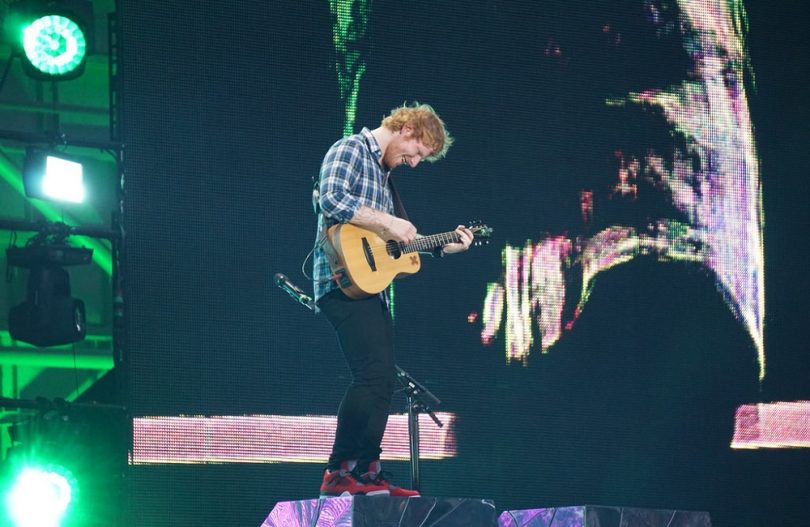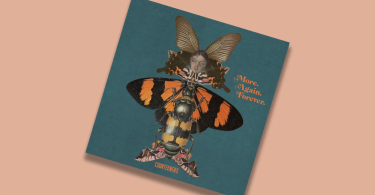On a July night at Wembley Stadium in 2015, 87,000 people flocked to see a major singer-songwriter in the first of three sold-out performances. The timing of the gig comes in conjunction of a tour to support his second record, and the expansion of his international fanbase into the millions, and counting.
For that performer, one would perhaps expect an illumination, a spectacle worthy of the status achieved, an event like no other. Ed Sheeran didn’t want that, and the fans did not object, for they got an alternative to it – a riveting two-hour performance with just him and his guitar.
The Guardian’s music critic, Alexis Petridis, put it like this:
“He’s up there for two hours, and the audience’s rapt attention never seems to wander.”
All about the fans
One year later, that success is still paramount wherever Sheeran goes. However, he remains vocal about his approach to it. He does not do the music for bloggers, reviewers, and the Kettle writer who pauses from writing on the business of journalism and media to write about culture. Instead, the folk-pop-rock musician focuses on those 87,000 fans, and then some.
That attitude was resonant with the public, and got him the title of the most played artist in the UK of the year recently by the royalty body Phonographic Performance Ltd. According to a report from the BBC, the attention of songs like ‘Photograph’, ‘Thinking Out Loud’, and the collaboration with drum and bass act Rudimental, ‘Bloodstream’, was the factor in their decision.
For Sheeran, noting in a 2014 interview with the Telegraph, even though he’s got showbiz connections (his representation is with Elton John’s management company and has toured with Taylor Swift), the fans were all that mattered.
“It’s always wrong to view your career as what the tabloids put it at,” Sheeran said. “The real people that buy my record are Jenny in Stoke or Jasmine in Glasgow. Real, and all over the country.”
INTERVIEW: #EdSheeran on love triangles, Harry Styles and singing ‘soppy love songs’ http://t.co/OpeSK2nodJ pic.twitter.com/ZIPLTWUOHe
— Telegraph Music (@TeleMusicNews) June 8, 2014
The sound of Sheeran
The centre attention of the fans, as well as his creative, astute observations of the current industry at the core of his abilities to think outside the box, have created two successful albums in nearly a five year period.
But as it does, our idea of Sheeran on record evolves. What began simply as the acoustic simplicity of ‘The A Team’ and ‘Small Bump’ and continues with the pop-tinged tunes ‘Sing’ and ‘Don’t’ conveys different perceptions of what his music is.
He is not afraid to revisit the basic elements of music that gave him success in the first place, as he did with ‘Thinking Out Loud’, but perhaps is conscious of being typecast – something he very much wants to avoid in an age where instant gratification through social media is the norm, not something voluntary. Sheeran experiments to maintain a fresh sound, to hone his craft, to figure out exactly what he wants out of music.
As a result, one would suspect looking at Sheeran that he is a faux pas in the world of modern pop music, where the expectation are these look at me spectacles, and your records consist of a technician working overtime ensuring the effects of the auto-tune can create a flawless sound. Alongside it is the effervescent influence of the daunting yet persistent Cowell-esque culture of talent, with its hope to have an everlasting hold on the top of the charts.
But on a night, whether gigging at Wembley in front of 87,000 or intimately at Maida Vale for a Radio 1 session, Sheeran is presented with the opportunity to prove everyone wrong, and he does.
He doesn’t need that influence. Instead, all he needs is his guitar.
Then, we watch in bewildered awe, as he rips up the rulebook, appears before the microphone, and allows the true element of the performer, as well as the reinvention of 21st century pop, to simultaneously come alive, right before our eyes.
What do you think about Ed Sheeran’s music? Have your say in the comments section below.









